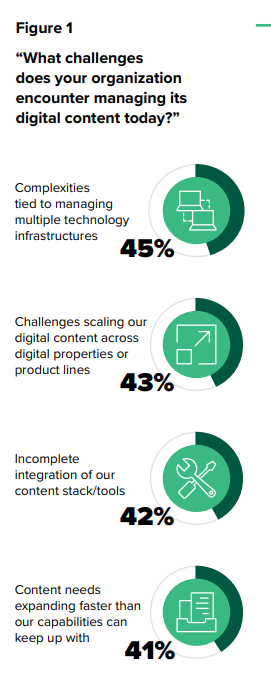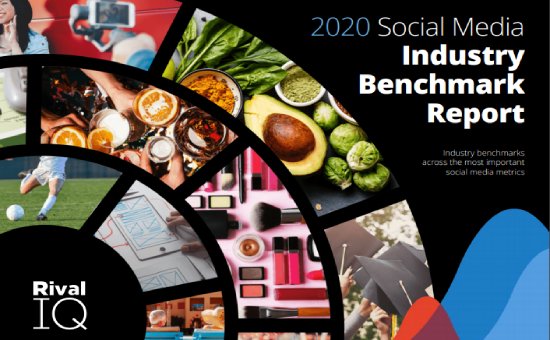How to ensure your content technology is solving, not creating, content problems | Brightspot
Content Marketing |
Executive Summary
Content is the essence of digital experiences. Without it, customers encounter blank screens, empty technical documents, and missing product videos, leaving a void in place of digital engagement. As customer experience (CX) channels and touchpoints multiply, so must the content that guides customers through their journeys.
To meet this growing demand, content leaders must adopt technology that makes managing this essential task feasible. Brand leaders face numerous content technology choices, primarily led by content management systems (CMSes) that allow brands to create, deploy, and analyze customer engagement with content. It is crucial for leaders to base their technology decisions on a clear understanding of their current and future content needs and capabilities, rather than trying to fit their content strategies into the limitations of any given technology.
In 2022, Brightspot commissioned Forrester Consulting to explore the state of CMS implementations at US brands and understand their impact on company success. Forrester conducted an online survey of 429 professionals in marketing, IT, or product teams who influence their organizations’ CMS purchases. The study found that many leaders are reevaluating their approach to CMS. However, the success of content management depends more on how well the CMS technology aligns with each organization’s specific needs than on the choice of technology approach.
Key Findings
- Expanding Content Needs and Technology Challenges: Content is vital to customer/brand relationships, which are becoming more complex across various channels, devices, and digital products. Growing content portfolios put increasing strain on content teams and the technologies they use. Many organizations have created a patchwork of content technologies that fail to integrate smoothly, complicating current and future requirements.
- Challenges in Aligning People, Processes, and Technologies: Many respondents’ organizations do not get adequate support from their current CMS implementations and are seeking to change their CMS as a result. Leaders need solutions for their most pressing content problems, including fragmented customer journeys, wasted resources on ineffective content, and slow time to market for new experiences.
- Choosing the Right Mix of Solutions: It’s critical for leaders to see beyond the marketing hype of headless vs. decoupled architectures. The focus should be on evaluating their organizations’ specific programs, capabilities, workflows, and existing technologies, and then selecting a CMS based on those criteria rather than the technology itself.
Brands Require Powerful Technology To Manage Expanding Content Portfolios
Content is the bedrock of customer experience (CX) and brand relationships. However, managing content is becoming increasingly complex due to rising customer expectations for value and relevance across all devices and channels, the growing dependency on digital experiences, and the need for highly personalized content that leverages customer insights and metadata. The challenge of content management intensifies with the diversification of customer engagement.
Respondents in this study reported significant difficulties in managing expanding content portfolios. When asked about their primary issues with current content management, 43% cited challenges in scaling digital content across properties or product lines, and 41% noted that their content needs were growing faster than their capabilities could handle (see Figure 1).

Every respondent faced at least one content management challenge, primarily due to technology complexity and the need to scale programs across digital channels and product lines.
CMS technology has evolved from simple web and email content creation tools to multichannel platforms that enable developers, creatives, marketers, and business leaders to collaboratively create and deploy content-driven digital experiences across various touchpoints. In recent years, decision-makers have primarily considered two types of CMS systems:
- Headless CMS: This system supports ‘write once, publish anywhere’ strategies essential for omnichannel experiences. A headless CMS is a back-end-only CMS that serves as a content repository, making content accessible via an API for display on any device without a built-in front-end or presentation layer.
- Decoupled CMS: This system allows brands to seamlessly integrate content authoring, refinement, management, and distribution. Decoupled CMSes provide both front-end experience management and back-end content management, functioning as either a content repository or a comprehensive creation, editing, and publishing suite.
However, these labels are often misunderstood and poorly marketed, leading brands to adopt headless implementations without adequately assessing whether they suit their needs, architectures, and strategies. This rush to a technology choice often overlooks the approach most likely to support their people, processes, workflows, goals, and existing technology.
Brands frequently hasten into CMS implementations without carefully considering which type of tools will best support their people, workflows, and objectives.
Continue reading to discover how to optimize your content technology and don’t miss downloading the full report.
The Table of Contents of “How to ensure your content technology is solving, not creating, content problems” Report:
- Executive Summary
- Key Findings
- Brands Require Powerful Technology To Manage Expanding Content Portfolios
- CMS Technology Must Help Solve Content Problems, Not Make New Ones
- ‘Headless Or Decoupled?’ Is Not The Right Question
- Key Recommendations
- Appendix
Number of Pages:
- 18 pages
Pricing:
- Free
Methodology
In this study, Forrester conducted an online survey of 429 respondents with decision-makers who influence their organizations’ CMS purchases in the US to evaluate the state of their content marketing technology. Survey participants included decision-makers in marketing, IT, product, digital, and corporate communications roles. Questions provided to the participants asked about their content strategies and technology. Respondents were offered a small incentive as a thank you for time spent on the survey. The study began in August 2022 and was completed in January 2023.






